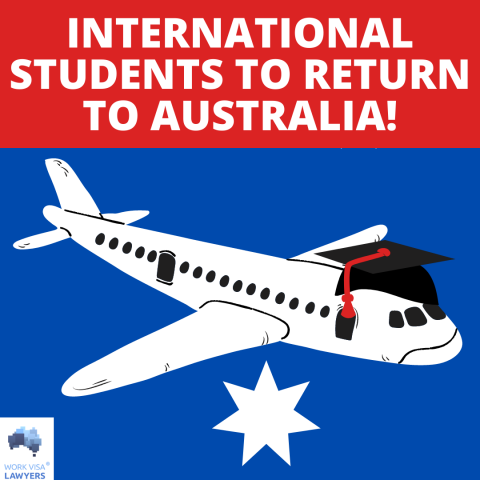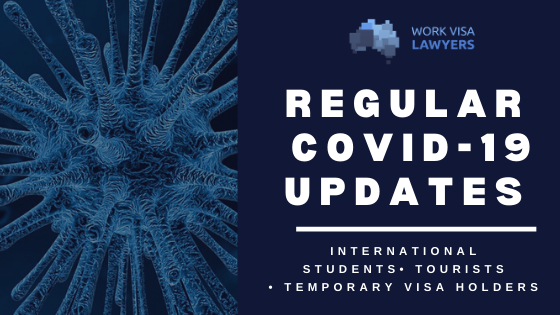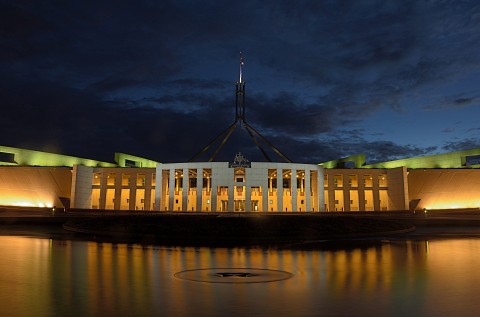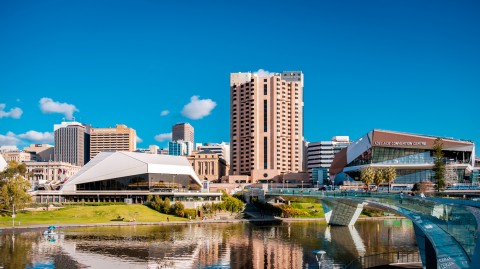The Australian government has announced significant revisions to its migration strategy, notably adjusting the Temporary Graduate Visa (subclass 485). A key alteration is the reduction of the age limit for applicants from 50 to 35 years or under, which will have implications for many international students and educational institutions.
Setting an age limit of 35 or under for graduate visas in Australia is likely to substantially affect international postgraduate students and the research capabilities of universities.
The government is planning to introduce the changes from the first of July 2024, as you can read here.
This article will discuss all the implications of age reduction, particularly for the postgraduate research sector, which includes international students studying for a Master’s degree by research or a Doctoral degree in Australia.

FOI Results Show Numerous PhD and Master by Research Students Will Be Impacted
Work Visa Lawyers obtained information from a Freedom of Information (FOI) request released on February 24, 2024, which provided insights on the number of international students who may be affected.
Click here to check the FOI and the number of postgraduate research in Australia.
The introduction of a 35-year age limit presents a significant challenge, particularly for PhD candidates, who may surpass this age during their studies. Therefore, being under 31 before starting a PhD becomes crucial.
As of January 31, 2024, Australia hosted 17,574 postgraduate research visa holders, including PhD and Masters by research students. Among them, 45.87% were under 30, 31.93% were aged 30 to 34, and 22.20% were over 35. This suggests up to 50% of current postgraduate research students might be ineligible for a graduate visa upon completing their studies if the age limit is lowered from 50 to 35 or under for all students since many students from 30 to 35 years old will finish their studies over 35 years old.
Masters and PhD Graduates Make Excellent Skilled Migrants
Eligibility for the 485 provides international students the time needed to line up employment and do skills assessments so as the possibility to apply for Australian PR. Without the possibility of a graduate visa many potential students that are over the age of 35 will choose not to study in Australia. This mainly means that Australia misses out on many post graduate students.
Masters and PhD students are more likely to obtain employment and secure better jobs, as seen on page 9 of the "Review of the Points Test Discussion Paper" released in April 2024. The review states:
"Education is strongly associated with positive employment outcomes for migrants. PhD graduates are more likely to be employed than Bachelor graduates, who in turn are more likely to be employed than Vocational Education and Training (VET) graduates. Education is also strongly correlated with incomes — migrants with a PhD earn 20 percent more over 10 years than migrants with a Bachelor degree. Education also has a stronger impact on successful labor market outcomes after five years than on immediate outcomes, reflecting that education enables migrants to adapt to a changing labor market.”
The Review also says: “Migrants with higher levels of education also contribute to a more dynamic economy, and improve the wages of local workers. A focus on education, along with English language skills, means migrants are less likely to be exploited, with modelling by the Grattan Institute showing that workers who are more educated are less likely to be paid below the minimum wage.”
In conclusion, the review says: “All these considerations are not fully reflected in the points test, with a PhD only earning 20 points, whereas a Bachelor degree earns 15, and a trade qualification 10. This does not reflect the degree of difference in outcomes, as the gap can easily be bridged by undertaking a professional year or returning to study in a regional area, which are worth 5 points each."
You can read the Review of the Points Test Discussion Paper here.
This implies that individuals with higher educational levels, such as PhD holders, are more likely to find better-paying jobs and will earn more points on the Points Test. Therefore, excluding individuals aged 36 and over from applying for the Graduate Visa will decrease the number of highly qualified and skilled individuals that Australia seeks.
It is concerning that the skills points review recommends more postgraduate migrants while the visa criteria is discriminating against or selecting against postgraduate students.
Effects on the Australian Research Community and Labor Market
The new age restriction is expected to saturate the student visa/graduate market with recent graduates from vocational and bachelor's programs who may lack experience and may find it challenging to secure employment in their field of study.
From my years of experience as an Immigration lawyer I have observed the most favourable employment outcomes come from Master's graduates with approximately 5 years of experience from their home country before pursuing Master's degrees in Australia. This demographic might now be discouraged from studying in Australia due to the new policy.

The average age of individuals entering PhD programs in Australia is 34, highlighting the significant role of mature students in the academic research environment. These students often contribute diverse life experiences and perspectives that enhance research and academic discourse.
Regarding international PhD students in Australia, data indicates a concentration in the early 30s age range, with about 40.9% of foreign PhD graduates remaining in Australia. This underscores their substantial contribution to the Australian research community and labor market.
Should Australia Exclude Mature Students from the Graduate Visa Program?
An age limit of under 35 for obtaining a graduate visa could potentially exclude a considerable portion of these mature students. This could have several implications:
1. Research Diversity and Quality: Mature students, including those over 35, often have substantial professional and life experiences that can contribute to the depth, diversity, and innovation in research. Limiting this group might reduce the richness of academic inquiry and debate within universities.
2. International Collaboration: International students, particularly those pursuing PhDs, play a vital role in the global academic community, fostering international collaboration and cultural exchange. Restricting age could deter these valuable contributors from choosing Australia as their destination, thereby impacting the international ties and networks that Australian universities benefit from.
3. Labor Market and Skill Development: PhD graduates contribute significantly to the high-skill labor market. An age restriction might not only affect the availability of skilled professionals in certain research fields but also limit the opportunities for mature students to further their careers and personal development through advanced research opportunities.
The proposed age limit could also deter international students, especially Ph.D. candidates, from choosing Australia as their destination, impacting the international networks and collaborations that benefit Australian universities.
Furthermore, Ph.D. graduates significantly contribute to the high-skill labor market, and an age restriction might limit the availability of skilled professionals in certain fields, as well as mature students' opportunities for career and personal development through advanced research opportunities.
An Age Policy Solution to Encourage International Post-graduates
A strategic age limit for Graduate Visas could be implementing a tiered age limit, such as 36 for Vocational and Bachelor degrees, 40 for Masters, and 45 for PhDs. This approach could maintain the engagement of international students in post-graduate research, while still advancing the government's migration policy goals of limiting older skilled migrants.
Type of course | Age limit |
Degree-level courses or vocational (VET) | Age to 36 |
Masters | Age to 40 |
PhD | Age to 45 |
Further, there should be a transitional period to allow for those who began study in Australia before the 1st of July 2024 to qualify for the graduate visa up to the age of 45. Those that start to study after the 1sf of July 2024 will know that there are new predictions in age limit and so will be able to make a decision based on that acknowledgment rather than having the rough pull down from them once they need the end of the course.

Conclusion:
The recent changes to Australia's Graduate Visa, specifically the reduction of the age limit to 35 years and under, present significant challenges for international postgraduate students, particularly those pursuing research-intensive degrees like PhDs. These changes impact not only the individuals directly affected—older students who bring a wealth of experience and depth to their fields of study—but also the broader academic and research communities in Australia.
Considering the substantial contributions of mature international students to the academic and labor markets, it would be beneficial for the Australian government to reconsider the age restrictions as suggested above.
Sources:
https://www.workvisalawyers.com.au/images/Number_of_student_visa_holders_in_Australia_February_2024.pdf
https://immi.homeaffairs.gov.au/programs-subsite/migration-strategy/Documents/migration-strategy.pdf
https://thesiswhisperer.com/2019/10/02/starting-a-phd-at-58-years-old/
https://www.homeaffairs.gov.au/reports-and-pubs/PDFs/points-test-discussion-paper-april-2024.pdf














